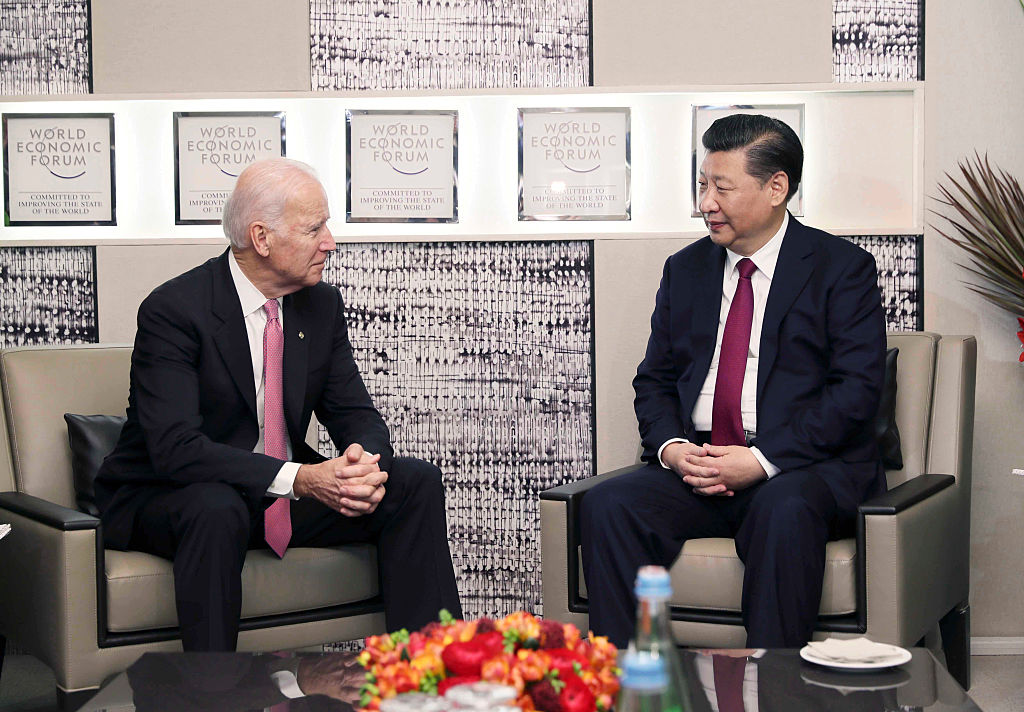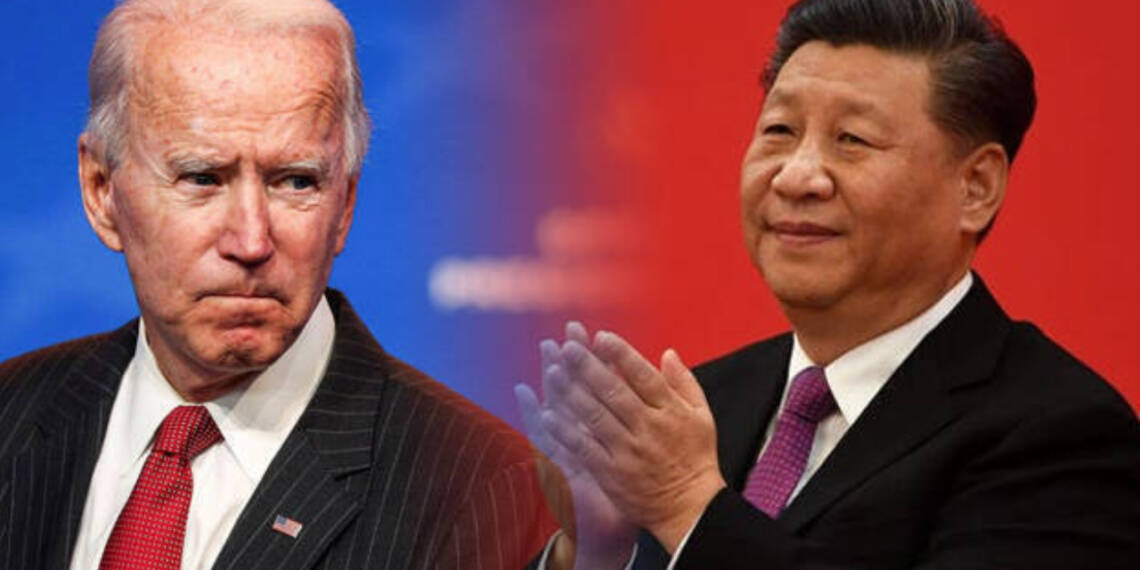President Xi Jinping’s recent private remarks to President Joe Biden regarding Taiwan, as reported by NBC News, have heightened U.S. officials’ apprehensions. These comments resonate with Xi’s earlier public declarations, where he has consistently expressed a desire for Taiwan to reunify with mainland China. The conversation between Biden and Xi, characterized as straightforward yet non-confrontational, underscores Xi’s firm position on Taiwan. While the Biden administration is keenly aware of Xi’s assertive language, it won’t raise a finger against China. Additionally, Xi’s declaration at the Chinese Communist Party Congress, suggesting the use of military force against any Taiwanese independence efforts, further emphasizes his resolute stance.
At the summit in San Francisco, a gathering that required substantial effort to organize due to tense U.S.-China relations, Biden emphasized the importance of preserving peace and steering clear of conflict. He reiterated America’s adherence to the “One China” policy, a stance that involves officially recognizing Beijing while not extending the same recognition to Taiwan.

The context of this message is notably significant due to China’s growing assertiveness towards Taiwan, especially with the island’s critical presidential election approaching, and the impending 2024 U.S. Election. U.S. Senator Lindsey Graham has advocated for a bipartisan approach to address China’s tactics. He underscores the need for a strong defense strategy for Taiwan and the importance of preparing stringent sanctions against China should an invasion occur.
Taiwan faces challenges in defending against a potential Chinese invasion, as its current military capabilities are not sufficiently robust. The 2023 Defense Report from Taiwan points out the escalating threat from China, drawing attention to Beijing’s enhanced military capabilities and strategic positioning close to Taiwan. Experts have raised concerns about the unpredictability of Taiwan’s response in the event of a conflict, especially if U.S. support is not clearly assured. To bolster its defense, Taiwan needs a comprehensive arsenal, encompassing anti-ship missiles, air-defense systems, as well as air and sea drones, and smart mines. These advancements are crucial for enhancing Taiwan’s defensive posture in the face of increasing threats.
Join us on Telegram: https://t.me/tfiglobal
Observations suggest that President Joe Biden exhibits a weak approach towards Xi Jinping, particularly evident in his affirmation of the One China policy. This policy, while maintaining the status quo, could be interpreted as a subdued posture when it comes to Taiwan.

This cautious approach towards China is not entirely new in U.S. foreign policy. It also characterized President Barack Obama’s tenure, where the focus was on managing the relationship with China through engagement and dialogue, rather than confrontation. Obama’s administration navigated a range of issues with China, including trade, human rights, and maritime disputes, but never bared its fangs.
In stark contrast, President Donald Trump’s administration took a more confrontational stance towards China. Trump’s approach, marked by the initiation of a trade war, represented a significant shift in U.S.-China relations. This period saw tariffs imposed on billions of dollars of Chinese goods, a move that brought economic pressure on Beijing and led to a reevaluation of its strategies, including its focus on Taiwan.
The trade war initiated by Trump had a significant impact on China’s foreign policy priorities. The economic strain and the international spotlight on China’s trade practices contributed to a temporary shift in China’s focus away from Taiwan, as Beijing grappled with the challenges posed by the trade war.
The assertiveness of the Quadrilateral Security Dialogue, comprising India, Japan, Australia, and the U.S., further complicated China’s strategic calculations. With leaders like Narendra Modi, Shinzo Abe, Scott Morrison, and Donald Trump at the helm of their respective countries, QUAD presented a united front that challenged China’s maneuvers in the Indo-Pacific region. This collaboration appeared to curb China’s ambitions in the East and South China Seas and provided a sense of empowerment to Taiwan.
During this phase, there was a noticeable reduction in China’s maritime activities in the contested waters of the East and South China Seas. The presence and the collaborative stance of the QUAD countries, along with international scrutiny, led to this development.

The geopolitical environment under the Trump administration, marked by a tougher stance on China and the strengthening of alliances like QUAD, seemed to offer Taiwan a more empowered position. Taiwan found itself with more international support and a stronger strategic position.
However, the current international landscape suggests a shift from these dynamics. The evolving geopolitical scenario, including changes in U.S. leadership and strategies, are leading to new challenges and a different set of dynamics in the Asia-Pacific region, particularly concerning Taiwan.
Given the possibility of China considering a move against Taiwan before a potential return of Donald Trump to power, Taiwan’s strategic focus should be on strengthening its defense capabilities. This is crucial in preparing for any unforeseen actions from China. To bolster its position, Taiwan could benefit significantly from reaching out to regional powers like India and Japan for support. Both India and Japan have vested interests in maintaining stability in the region and have shown concerns about China’s growing assertiveness. Collaborating with these nations could provide Taiwan with crucial strategic and military support, enhancing its defense readiness and deterrence capabilities against potential threats. This approach, while strengthening Taiwan’s own defense, also contributes to a broader regional balance of power.
Recommended Video:








